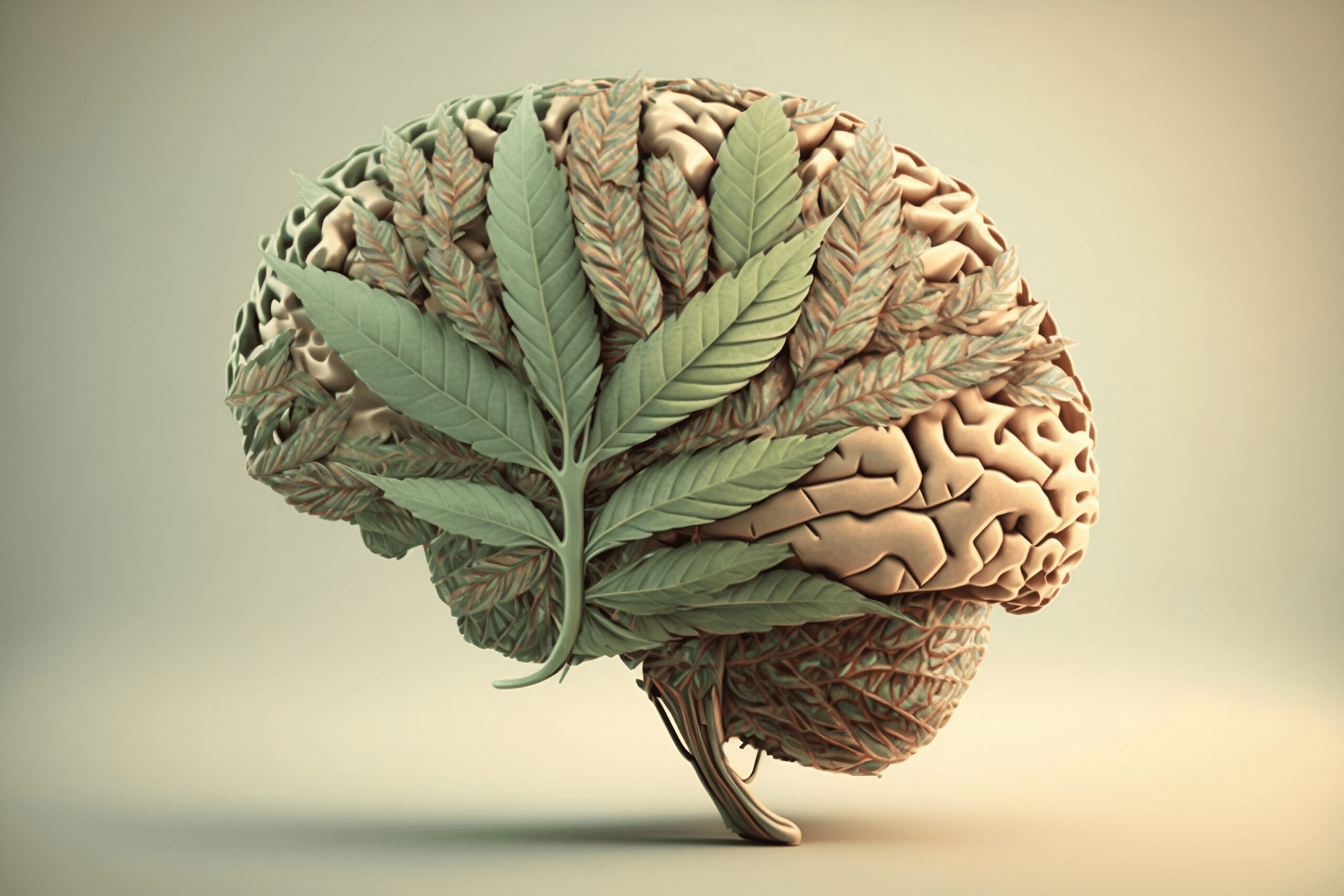In the world of cannabis and hemp products, there’s a concept that’s sparking a lot of curiosity and excitement—it’s called the ‘entourage effect.’ In this blog, we’ll explore what the entourage effect really is and discover why it’s becoming a game-changer in how we perceive and use cannabis.
What is the ‘Entourage Effect’?
Imagine you’re at a potluck dinner. Everyone brings a different dish to the table, but instead of being a series of sides, the dishes come together to create one delicious meal. That’s what’s going on with the entourage effect. The theory is that all of the compounds offer their unique powers, which contribute to the overall effect of the strain.

It’s All About Teamwork
Let’s take cannabinoids and terpenes as an example of the entourage effect’s teamwork. Alone, each of these components has its own effects and benefits. But when they come together, they start to interact in a way that enhances each other’s qualities. This is the heart of the entourage effect – it’s like a team where each player brings out the best in the others.
A Balancing Act
While some compounds can boost effects, some compounds balance the effects of others. For example, THC gets you high, while CBD doesn’t. Interestingly, when CBD and THC are together, CBD can actually reduce some of the less desirable effects of THC, like anxiety or paranoia. It’s like having a friend who keeps you grounded when you’re getting a bit too worked up.
Add a Bit of Spice
Think of terpenes and flavonoids as the seasonings of the cannabis world. They don’t just add sensory pleasure with their aromas and flavors; they also interact with the cannabinoids to enhance or modify the overall effect. For instance, a terpene called myrcene is believed to help THC work more effectively.
The entourage effect is like a fantastic get-together of compounds where the whole experience becomes more than just the sum of its parts. It’s a fascinating example of how complexity in nature can lead to some pretty amazing outcomes.
Why Does the Entourage Effect Matter?
So, the entourage effect is an interaction between cannabis compounds that brings out the best possible effects. This concept is shaking up how we think about cannabis, and for good reason. But why does the entourage effect matter? Let’s dive in.
It’s Not Just About Getting High
First things first, the entourage effect moves the conversation beyond just getting high – it’s about getting more balanced and nuanced uses. This synergy could mean more effective relief for medical users or a more enjoyable experience for recreational users. The entourage effect focuses on the quality of the experience, not just the intensity.
Tailoring the Experience
Think about how you pick your coffee or tea. Some like it black, others with a hint of sugar or maybe a dash of cinnamon. The entourage effect in cannabis works similarly. Depending on the combination of compounds, the effects can vary greatly.
This means potentially tailoring cannabis products to better suit individual needs and preferences, whether it’s for relaxation, pain relief, or just enjoying a chill evening.
Enhancing Potential Therapeutic Benefits
For those using cannabis for medicinal purposes, the entourage effect is a game-changer. Instead of isolating a single compound (like CBD), utilizing the full spectrum of cannabis compounds can lead to better relief.
It’s like using a whole toolkit instead of just one tool. The combined effect of these compounds can enhance pain relief, reduce anxiety, and even improve sleep quality – all with potentially fewer side effects.
Green Koi Rec & Med Dispensary – Helping You Understand The Cannabis Plant
Overall, the entourage effect is more than just a cool concept; it’s a pivotal part of understanding cannabis. It’s about embracing the complexity and richness of this plant and how it interacts with us in multifaceted ways. Whether you’re a long-time enthusiast or just cannabis-curious, the entourage effect is a key piece of the puzzle in appreciating this powerful plant to its fullest.
*The contents of this blog are intended for informational purposes only. Always seek the advice of a physician or other qualified healthcare provider with any questions you may have regarding a medical condition.*


